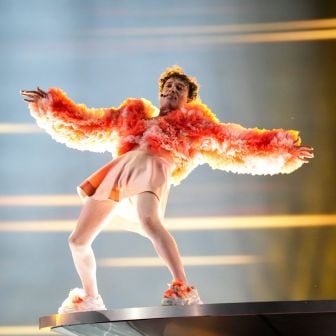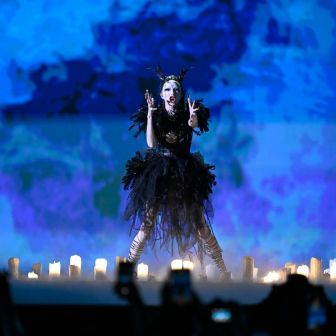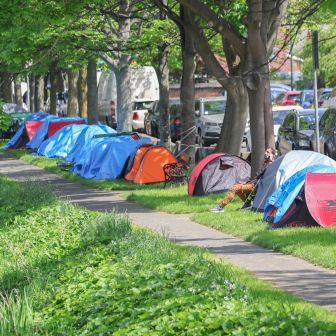The Operation Puerto doping case – resulting from the 2006 raid on the home of Dr. Eufemiano Fuentes (pictured above, arriving at court yesterday) which discovered anabolic steroids, blood transfusion equipment and over 200 refrigerated bags of blood - had its first sitting yesterday, in Madrid. The trial will concern itself with public health issues, and will name cyclists who have doped. However, there are almost 150 names of professional sportspeople from other sports, including football and tennis, who will remain unnamed.
The first morning was taken up with legal preambles; however the trial is expected to last for several months, with Fuentes, his sister and three former cycling coaches facing charges of breaking public health laws. The accused are not charged with doping offences as at the time of the raid there were no anti-doping laws in Spain.
The most striking aspect of the situation is that the trial will only examine the relationship between Fuentes and cycling, despite the knowledge that investigators found Fuentes had over 200 clients, of which just 54 were cyclists. The remainder are believed to be from other major sports, such as football and tennis. Those suspicions go further; with many believing footballers from some of Spain’s largest clubs were clients of Fuentes. Former Tour de France cyclist Jesus Manzano was a client of Fuentes’ and has publicly claimed he saw “well-known footballers” at Fuentes’ clinic. However, as it stands the non-cycling names will not be released to the public or dealt with in the course of the trial. Sepp Blatter requested a copy of the Puerto file in 2007 but since then has not spoken about the issue.
David Howman, Director General of The World Anti-Doping Agency (WADA), spoke to Eoin McDevitt on last night’s Off the Ball, as did Sunday Independent journalist sports Dion Fanning, who recently wrote on the topic.
Howman told Eoin that WADA have faced tough resistance in their fight to get the findings of Operation Puerto released, and have had to struggle just to get a hearing of the trial. Howman confirmed the suspicions that the vast majority of the sportspeople implicated in the findings of the investigation will not be names, “What we’ve been told is that the patients who are going to be named in the trial itself are only cyclists. Now that’s just not right.”
Howman also told Eoin that WADA have not been allowed full access to the evidence, an issue with roots in the Spanish authorities. Spain has a chequered history with its opposition to doping at the same levels of many other nations. In Tyler Hamilton’s book The Secret Race he admitted that cyclists felt they could “tape EPO syringes to your forehead and wouldn’t get busted in Spain.” Dealing with the Spanish authorities has “been a battle” according to Howman.
The central involvement of journalists Paul Kimmage and David Walsh in bringing the Lance Armstrong case to its conclusion has been well documented in the past few weeks. Why then, with such a massive sports media, does Spain not have a media looking to delve further into such a controversial area of sport in their country?
Dion Fanning told Ken Early that the overriding roadblock to that sort of investigative journalism is fear. Journalists depend on access to clubs and players to write stories, and thus to make a living. Any great effort to expose issues such as doping could cost a journalist access to those people who ensure they keep their jobs. As a result most, perhaps almost all, would be “very reluctant to rock the boat.”
There has been some coverage of the issue, notably outside of Spain. In 2006 French newspaper Le Monde reported that Fuentes had worked with four La Liga clubs - Barcelona, Real Madrid, Valencia and Real Betis. Barcelona sued the newspaper over the allegations and received damages of €15,000 as the paper was found guilty of defamation of the club. The figure had been reduced from an original fine of €300,000 following an appeal to the Spanish Supreme Court.
Fuentes told Le Monde, "I worked with Spanish first and second division clubs…I worked with several clubs at the same time, sometimes directly with the footballers themselves, sometimes by sharing my knowledge with the teams doctors. I was the doctor of the Las Palmas team in 2002 during a year when it played in first division... I had an offer from an Italian club but I turned it down.
The doctor would not go on to name specific clubs he had worked with. "I can't tell, I have received death threats," he said.
"I was told that if I told certain things, my family and myself could have serious problems. I've been threatened three times and it's not going to happen a fourth time.
"There are sports against which you cannot go against, because they have access to very powerful legal means to defend themselves. And it could also cost the current chief of the sport his post."
Dion fanning also mentioned the case of Arsene Wenger publicly saying that some players who Arsenal signed from continental clubs were arriving at the club showing signs of having taken EPO, perhaps unwittingly. The story was never followed up in any significant depth.
While football does not have the same culture of doping as cycling, wherein a young cyclist will inevitably face the decision on whether to dope or not, but, as Fanning told Ken, “at the same time there are huge advantages…the idea that you could have your best player, always fit, recover quickly from injury is a great advantage.
“It seems strange not to ask the question - Would football clubs dope?”









